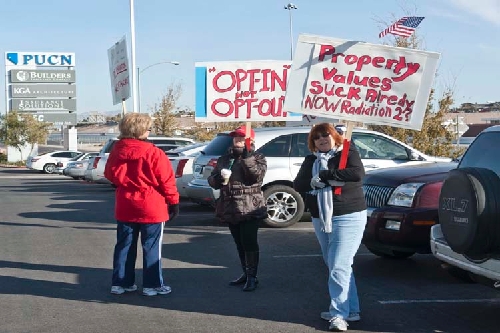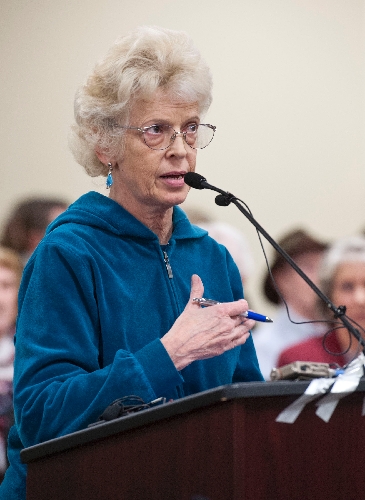Tempers flare at workshop on smart meters



It’s a small group with a big voice.
About 50 consumers in Las Vegas and Carson City slammed smart meters Wednesday in a state Public Utilities Commission workshop on rules to let consumers opt out of NV Energy’s smart-meter plan.
Tempers flared early despite warnings from commission officials. Hearing officer Nancy Wenzel began the teleconferenced session by warning she’d end it if participants shouted, talked over each other, interrupted speakers or clapped.
She also noted “some threats made in Las Vegas amongst participants. That will not be tolerated.”
Still, the crowd couldn’t contain itself, with consumers sighing, gasping and whispering loudly as NV Energy executives discussed opt-out plans. Security guards ejected one man who yelled objections as Gary Smith, NV Energy’s project director of smart technologies, talked about upgrading analog meters that no longer accurately collect data.
“They’re lying to you! Those meters are reliable! It’s lies,” the man shouted as guards removed him from the building.
Smart-meter opponents say radio waves from the devices, which link to the utility to save on meter-reading costs, cause poor memory, leukemia, wrinkles and hair loss, among other health problems. They also worry about privacy. The commission approved the NV Energize program in 2010, but set up workshops to look into concerns after comments from ratepayers in late 2011.
They had more to say Wednesday.
“Their opt-out plans are designed to intimidate us into going along with it because they know we don’t have that kind of money to burn,” said Las Vegan Wendy Ellis.
Added Carol Feinberg of Reno: “I do not want to pay for an opt-out. I shouldn’t have to pay one dime more than my actual usage. NV Energy and the Public Utilities Commission signed onto this boondoggle with no federal or state mandate, but somehow, it’s not optional. I am pleading my Fourth Amendment rights and choosing not to opt into your program to have a radiation-emitting surveillance device attached to my home.”
NV Energy has installed 710,000 of 724,000 residential smart meters in Southern Nevada. About 5,000 people have asked to postpone installation while the commission discusses opt-outs.
If the commission lets people leave the program, NV Energy would replace two-way smart meters with devices that don’t transmit data. Another option would retain old analog meters, but that could mean higher maintenance costs as utilities phase out analog devices nationwide, the company said. At the end of 2011, utilities had installed nearly 50 million smart meters nationwide, said NV Energy attorney Sean Elicegui.
One-time fees for an opt out would range from $110 for non-communicating smart meters to $180 for analogs. Monthly charges would be $14 to $15.
The California Public Utilities Commission is mulling a $90 opt-out fee and $15 monthly charge, though Pacific Gas & Electric had asked for a one-time charge of about $270 for non-communicating meters.
The Oregon Public Utility Commission has approved a $254 one-time charge to opt for a non-communicating meter, plus a $51 monthly charge. In Maine, opting out costs $20 to $40, then $12 a month. Other commissions, such as Oklahoma’s, have rejected opt-outs.
The commission will decide on opt-outs in February at the earliest, said commission spokesman Peter Kostes. Proposed charges would require a separate filing and hearings later in 2012.
Contact reporter Jennifer Robison at jrobison@review journal.com or 702-380-4512.












